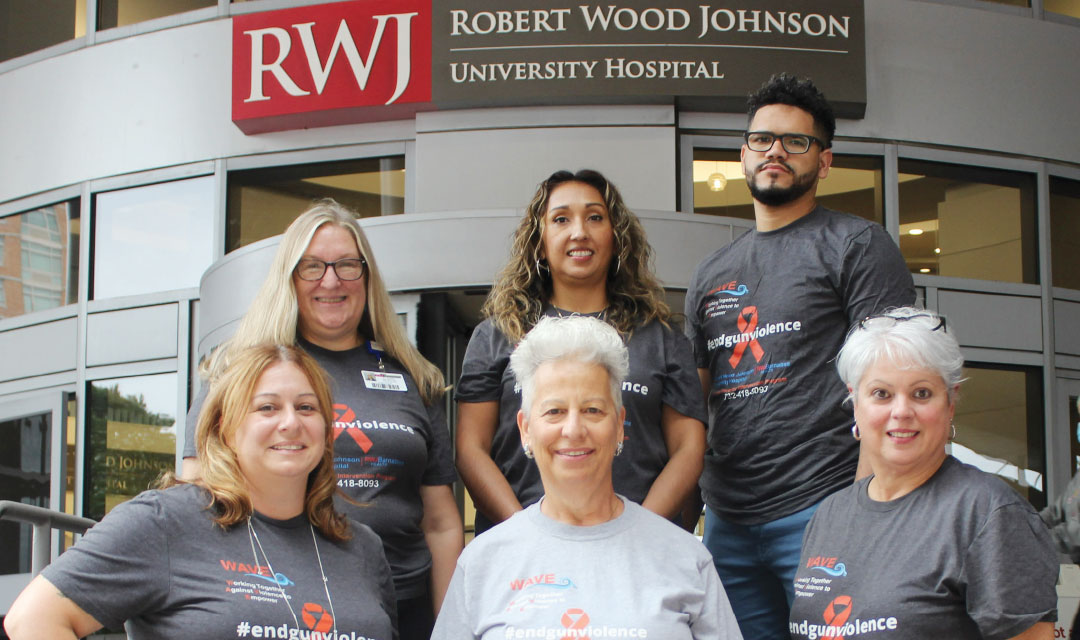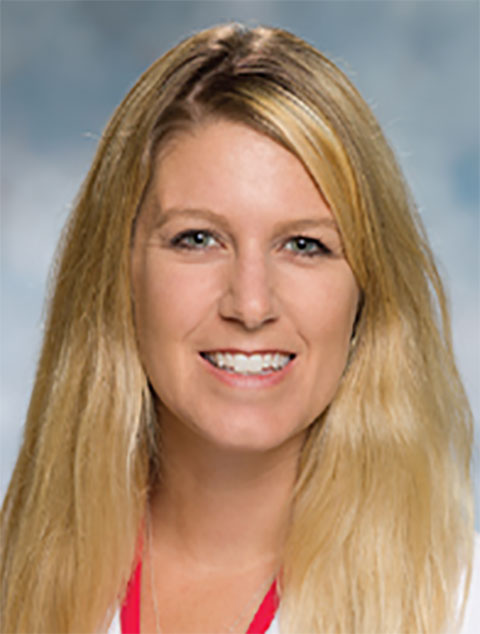“If I hadn’t gone through this program, I don’t know what my life would be like.”

An Intervention Program Helps Survivors of Traumatic Crimes.
In January 2022, Roberto Rodriguez* was walking to breakfast before starting his job at a local car wash when a van pulled up and three men got out. One threatened him with a gun, and another demanded money. Then they assaulted him. Roberto didn’t remember much about the incident—but knew that police arrived on the scene and EMS rushed him to Robert Wood Johnson University Hospital (RWJUH), a Level I trauma center, with a head injury.
After he was treated and released, police brought Roberto home, where he began to recover. But as he healed physically, the attack haunted him. Overwhelmed by post-traumatic stress, he became afraid to leave his house. Every car that passed his door triggered a sense of dread. “I lived in constant fear that someone would show up at my house and hurt me,” he says.
Anxiety and fear deepened to depression, and Roberto realized he needed help. That’s when the woman who rented the house where he lived offered some advice. Her home had been evaluated by the New Brunswick Healthy Homes Program, a grantfunded initiative led by RWJUH’s Community Health Promotions Program. She connected Roberto with outreach workers who then referred him to RWJUH’s Hospital Violence Intervention Program (HVIP).
Photo: Hospital Violence Intervention Program (HVIP) team members include (top row, from left) Elaine M. Hewins, HVIP Community Intervention Manager; Jessy Cordova, HVIP Violence Intervention Specialist; Ariel Jimenez, HVIP Violence Intervention Specialist; (bottom row, from left) Lauren Gmitter, HVIP Program Manager; Diana Starace, Injury Prevention Program Coordinator; and Mariam Merced, Director for Community Health Promotions.
Addressing Risks
“Our goal is to respond to an underserved population of crime victims—victims of community violence—with wraparound care,” says Elaine M. Hewins, Community Intervention Manager for the HVIP. “When trauma patients are injured due to violence, there are often layers of social issues that affect them and their ability to heal, such as poverty, racism and inequality.”
Such social determinants of health often affect patients’ ability to access follow-up care and receive necessary services.
“If someone lives in poverty, is an immigrant and perhaps undocumented, or resides in an area with substandard housing or education, they can experience systemic racism on a daily basis and so have relatively few resources and support prior to being injured,” Hewins says. “When they are the victim of a gunshot wound, stabbing or assault, it’s even more difficult for them to stabilize and rebuild their life.”
The HVIP, which serves crime victims in Middlesex County, Plainfield in Union County and Franklin Township in Somerset County, works to eliminate these barriers by providing intensive case management for six to 12 months post-discharge, says Hewins.
A multidisciplinary team of physicians, social workers, nurses, violence intervention specialists and therapists helps with a variety of needs including vouchers for transportation to followup appointments and financial help for medical bills or food if patients are not able to work.
The HVIP partners with PRAB, a community-based human services organization that provides trauma-informed mental health counseling—a core service, as many survivors of violent crimes develop anxiety, depression or post-traumatic stress disorder (PTSD) after they are injured. All services are free.

The program also facilitates the Working together Against Violence to Empower (WAVE) Consortium, a group of 25 community agencies that assist with resources and referrals for the HVIP and its participants; promote trauma-informed care; and work against racism and violence throughout the community and beyond.
An important aim of the HVIP is to prevent revictimization.
“Among the population of people who’ve already had a violent injury, the average risk of having another violent injury due to gun violence is 12 percent to 16 percent,” says Rachel L. Choron, MD, FACS, a trauma and acute care surgeon at RWJUH and Assistant Professor of Surgery at Rutgers Robert Wood Johnson Medical School. “But once you have HVIP services, that risk has been shown to decrease to around 4 percent. So the program is having a big impact on our patients, particularly gun violence patients.”
Personal Attention
When Ariel Jimenez, Violence Intervention Specialist, first meets with victims of violent acts, he seeks to gain their trust. He starts by asking what they need and how he can help.
“We can accompany them to doctor appointments and translate if they need it,” Jimenez says. “We also help them apply for disability, charity care and victims’ compensation funds.”
Roberto’s most urgent need was mental health counseling. Through PRAB, he connected with a therapist who addressed Roberto’s PTSD, helped him overcome his fears and taught him strategies and techniques to calm anxiety triggered by passing cars. Roberto also received food assistance, clothing and transportation to therapy and medical appointments.
“Ariel has such a good heart,” says Roberto. “He took me personally to get clothes and complete all the paperwork I needed [for victims’ compensation]. I am so grateful that someone was looking out for me.”
“Fixing someone’s physical injuries can only help so much,” says Dr. Choron. “After you do that, the real work begins. The HVIP is doing the hard work to get people back on their feet.”
Roberto, who has returned to work at a cleaning business, agrees.
“If I hadn’t gone through this program, I don’t know what my life would be like,” he says, pointing especially to weekly follow-up calls from specialists like Jimenez. “I didn’t know there were people like that here. All of their support helped me put my life back on track. My mind is in a better place, and I finally feel like I can move forward. I know how to live without fear.”
To learn more about the Hospital Violence Intervention Program at Robert Wood Johnson University Hospital, call 732-532-6202.